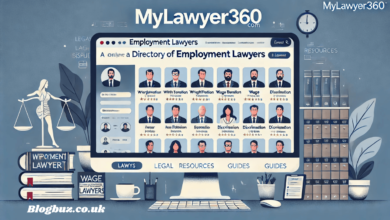How to Handle an Arrest: Tips from Legal Experts

Getting arrested can be one of the most stressful and overwhelming experiences in life. The moment can feel like a blur, and knowing what to do and say in such a situation can be difficult. However, understanding your rights and the right actions to take can help you remain calm and avoid making the situation worse. Below, we share expert tips on how to handle an arrest, with a straightforward and friendly approach to give you confidence if you ever face such a situation.
1. Stay Calm and Think Clearly
The first rule of handling an arrest is to stay as calm as possible. Yes, this is easier said than done, but remaining calm helps you think more clearly and act appropriately. When you’re panicking, it’s easy to make decisions that may hurt you later. Take deep breaths, focus on keeping yourself composed, and remember that you have rights.
2. Know and Exercise Your Right to Remain Silent
One of the most important rights you have when arrested is the right to remain silent. You do not have to answer any questions, and it’s often best to say as little as possible. The police may try to gather information from you, and anything you say can be used against you in court.
Here are some ways to exercise this right:
- Politely tell the officer, “I am invoking my right to remain silent.”
- Avoid casual conversation with officers. It’s natural to want to explain yourself, but even small details could be misinterpreted.
- Refrain from discussing anything about the case until you speak to a lawyer.
3. Ask for a Lawyer
Another critical right you have during an arrest is the right to an attorney. As soon as possible, politely request to speak to a lawyer. An attorney will protect your interests, advise you on what to say, and help you understand the charges against you.
Why this is essential:
- A lawyer can prevent you from accidentally incriminating yourself.
- They can ensure your rights are respected.
- They can start building a defense from the moment of your arrest.
Remember, if you cannot afford an attorney, one will be provided for you. Do not feel pressured to answer questions without legal representation.
4. Understand the Charges Against You
When you are arrested, it’s crucial to understand the charges you’re facing. Ask the arresting officer or your lawyer to explain the charges in plain language. Knowing what you are being accused of helps you work more effectively with your lawyer.
If you’re arrested in Virginia, for instance, it can be helpful to search records online to understand past cases and see how similar arrests were handled. If you’re curious about arrest records or need more information, visit How to search arrests records in VA. This resource provides valuable insights into the arrest history in Virginia, allowing you to better understand legal proceedings in the state.
5. Do Not Resist Arrest
It’s natural to feel defensive or want to resist, especially if you believe the arrest is unfair. However, resisting arrest can lead to additional charges and complicate your legal situation. Instead, comply with instructions as much as possible to avoid physical confrontations or escalation.
If you feel your rights are being violated, stay calm and document everything you can remember. Resisting can worsen the situation, while calm cooperation makes it easier to defend your case later.
6. Avoid Signing Anything Without Legal Advice
During the arrest process, you may be asked to sign documents, such as a confession or waiver. However, signing without understanding the details can lead to unintended consequences. Wait until you’ve spoken to a lawyer before agreeing to or signing any documents. Your lawyer will be able to clarify if signing is in your best interest or advise you to decline.
7. Know That You Can Challenge Unlawful Arrests
If you believe you were arrested without just cause, or if the officers violated your rights during the arrest, you may be able to challenge the arrest in court. Your lawyer can help you file a complaint and gather evidence of misconduct. This could involve any behavior by law enforcement that violates legal procedures, such as:
- Arresting you without probable cause.
- Failing to read your Miranda rights.
- Using excessive force.
In some cases, you may be able to have the charges reduced or even dismissed if the arrest was unlawful.
8. Prepare for Bail Options
After an arrest, there’s usually a chance for bail—a payment that lets you stay out of jail until your court date. During your arrest, it’s helpful to have a friend or family member ready to help with this process, as they can secure the necessary funds or work with a bail bondsman if you cannot afford bail on your own. Your lawyer can also explain your bail options, giving you an idea of the process involved and what to expect.
For those facing arrest situations in Virginia or looking up records, resources like https://va-arrests.us/ can provide more context on typical bail amounts and case outcomes, depending on the charges.
9. Keep a Record of the Arrest
After the arrest, it’s important to document as much as you can remember about what happened. Write down details like:
- The time and place of the arrest.
- Names and badge numbers of officers (if available).
- Actions or statements made by law enforcement.
- Any witness names or contact information, if possible.
Documenting these details will help your lawyer build a strong case, especially if you experienced any mistreatment or believe the arrest was unlawful.
10. Stay Informed About Court Appearances
After the initial arrest and bail process, you will have court dates and possibly other legal procedures to attend. Missing these appointments can result in serious consequences, including additional charges or forfeiting your bail. Make sure to keep track of all dates, stay in touch with your lawyer, and be on time to all court proceedings.
Final Thoughts
Facing an arrest is never easy, but with a basic understanding of your rights and a few key steps, you can handle the situation more confidently. Always remember to stay calm, invoke your right to remain silent, and request a lawyer. These steps are essential to protecting yourself, no matter the charges. And if you’re interested in learning more about arrest records, www.arrests.org offers a useful resource for finding public arrest information across different states.
Having the right approach and being aware of your legal rights can make all the difference. If you follow these tips, you’ll be in a better position to navigate the process and protect your future.



